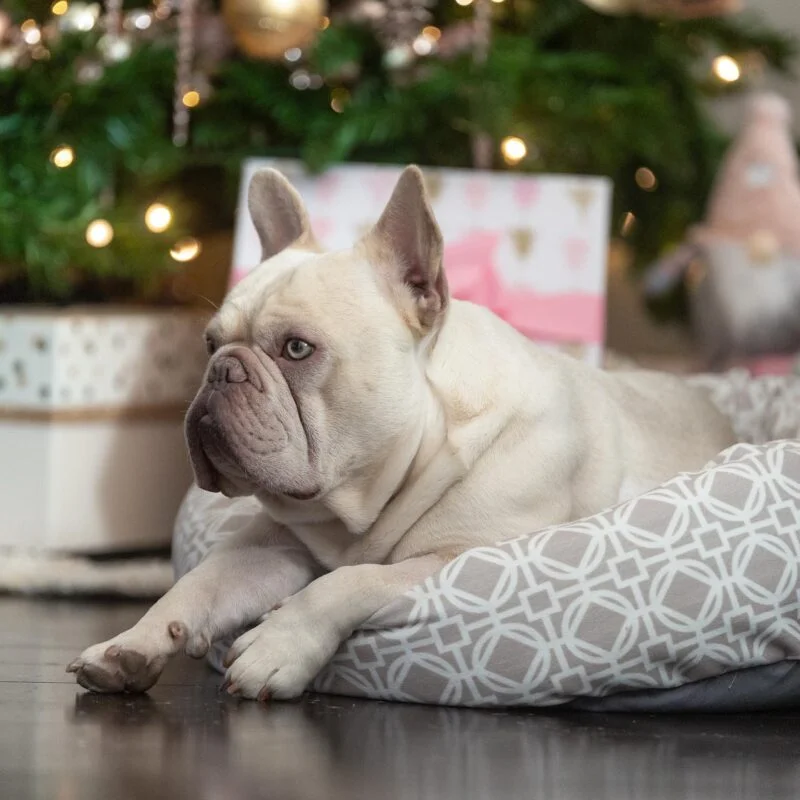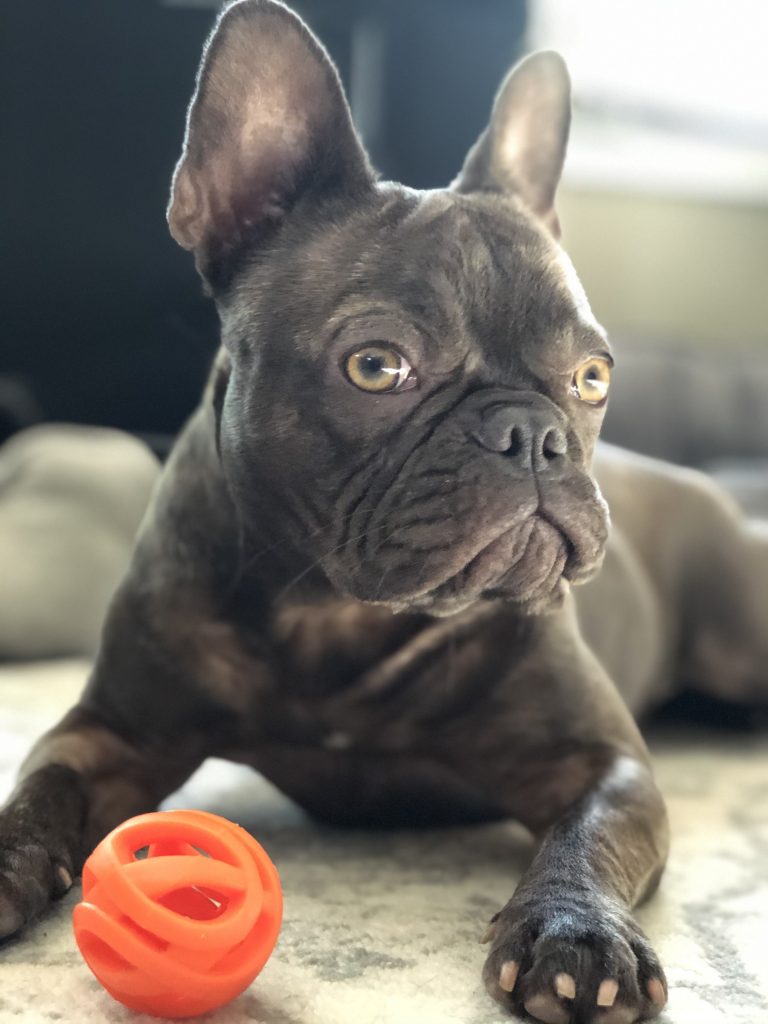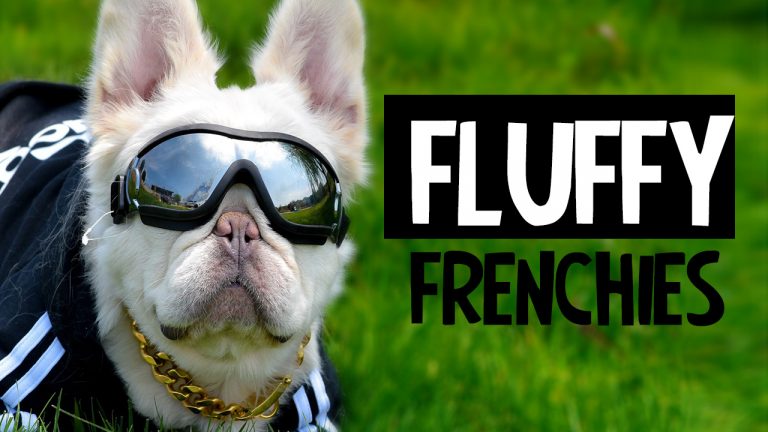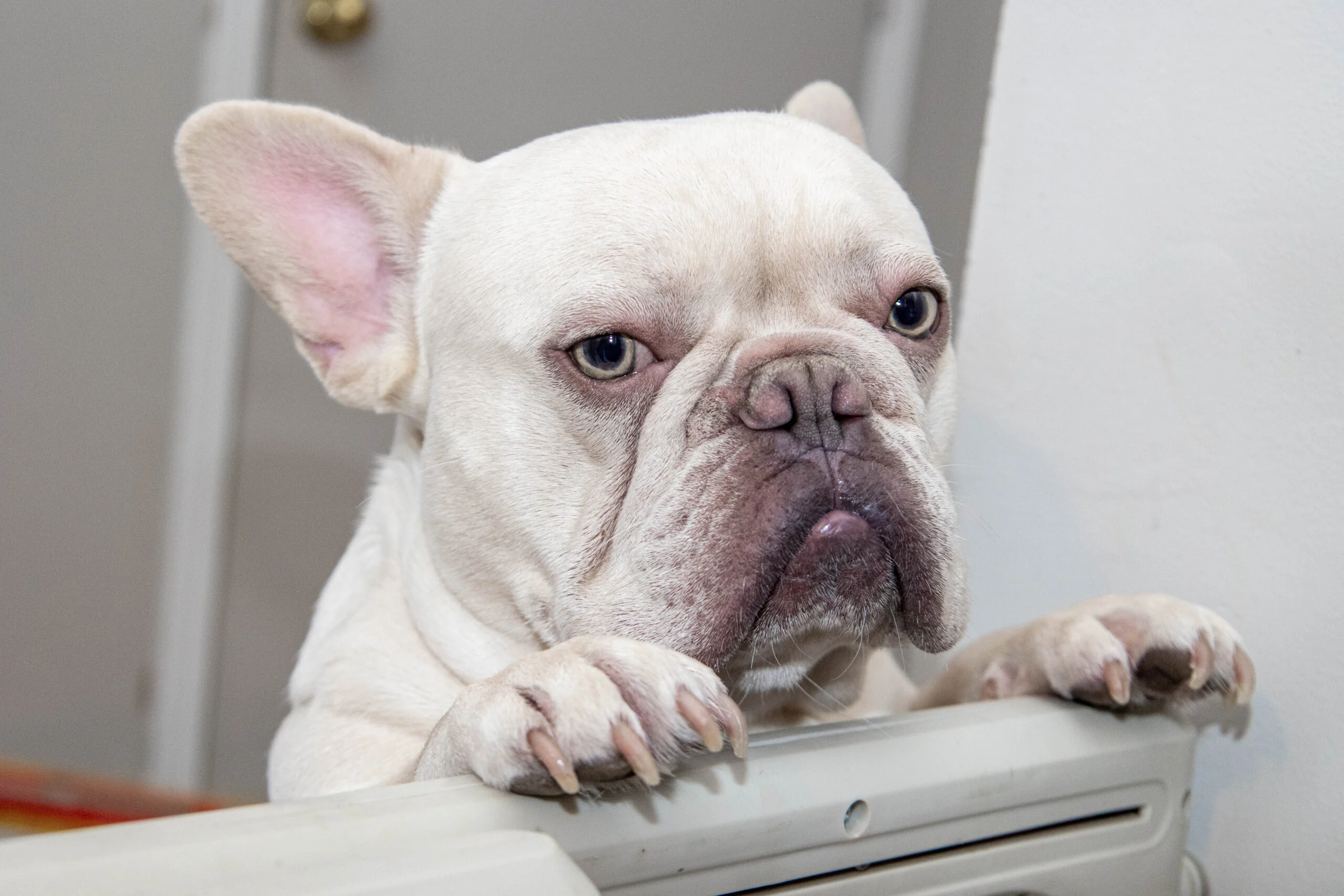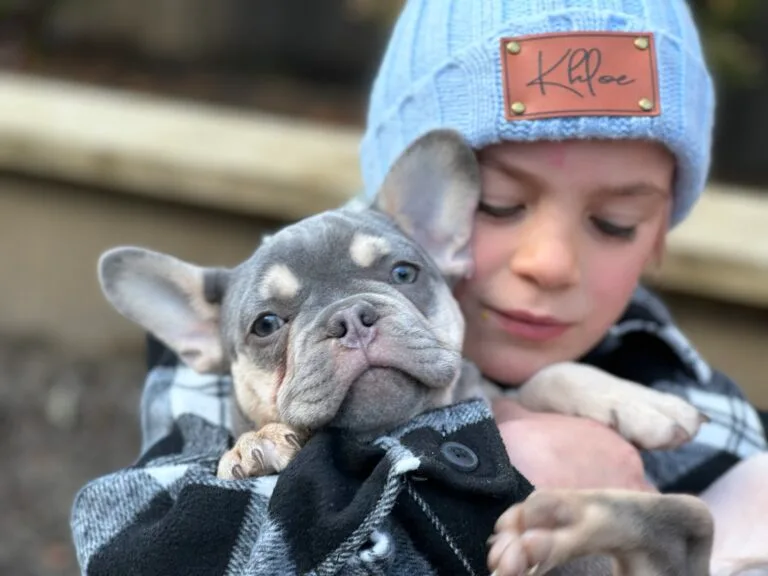DNA Testing
We focus on French Bulldogs, but DNA testing any breed can provide some assurances and also identify genetic markers associated with an increased risk of injury or illness. When you know what conditions exist, you can prepare the dog’s lifestyle and diet to help prevent an issue from surfacing.
Health Testing
For breeders, DNA testing is a must, but in some cases, it can point you in the wrong direction. Whiles some genetic markers seem to be quite accurate, there have been some instances where DNA testing has gotten it wrong. One of these markers is Degenerative Myelopathy (DM) in French Bulldogs. This genetic marker was thought to predict a fatal spinal cord degeneration, but later the research was found to be incorrect. To this day, many breeders still exclude French Bulldogs from their program if this marker is present. While DNA testing is a great tool, you should take the time to research what markers mean for your breed. Some common health markers for a French Bulldog:
- Cystinuria Type3 (C3)
- Intervertebral Disc Disease (IVDD)
- Juvenile Hereditary Cataracts (JVC)
- Hyperuricosuria (HUU)
- Canine Multifocal Retinopathy 1 (CMR1)
DNA Testing for French Bulldog Color
DNA testing can be used as a tool to determine what colors and patterns a breeder may want to produce. Testing your dog can identify any recessive and dominant colors or patterns present. These are subject to the rules of gene dominance. Some common colors tested for in Frenchies:
- Chocolate/brown (b)
- Cocoa (co)
- Blue (d)
- Cream (e)
Common patterns tested for:
- Tan Points/Solid/Fawn (At/a/Ay)
- Brindle (kbr)
- Merle (M)
- Pied (s)
Other traits tested on French Bulldogs:
- Intensity (i)
- Longhair (l)
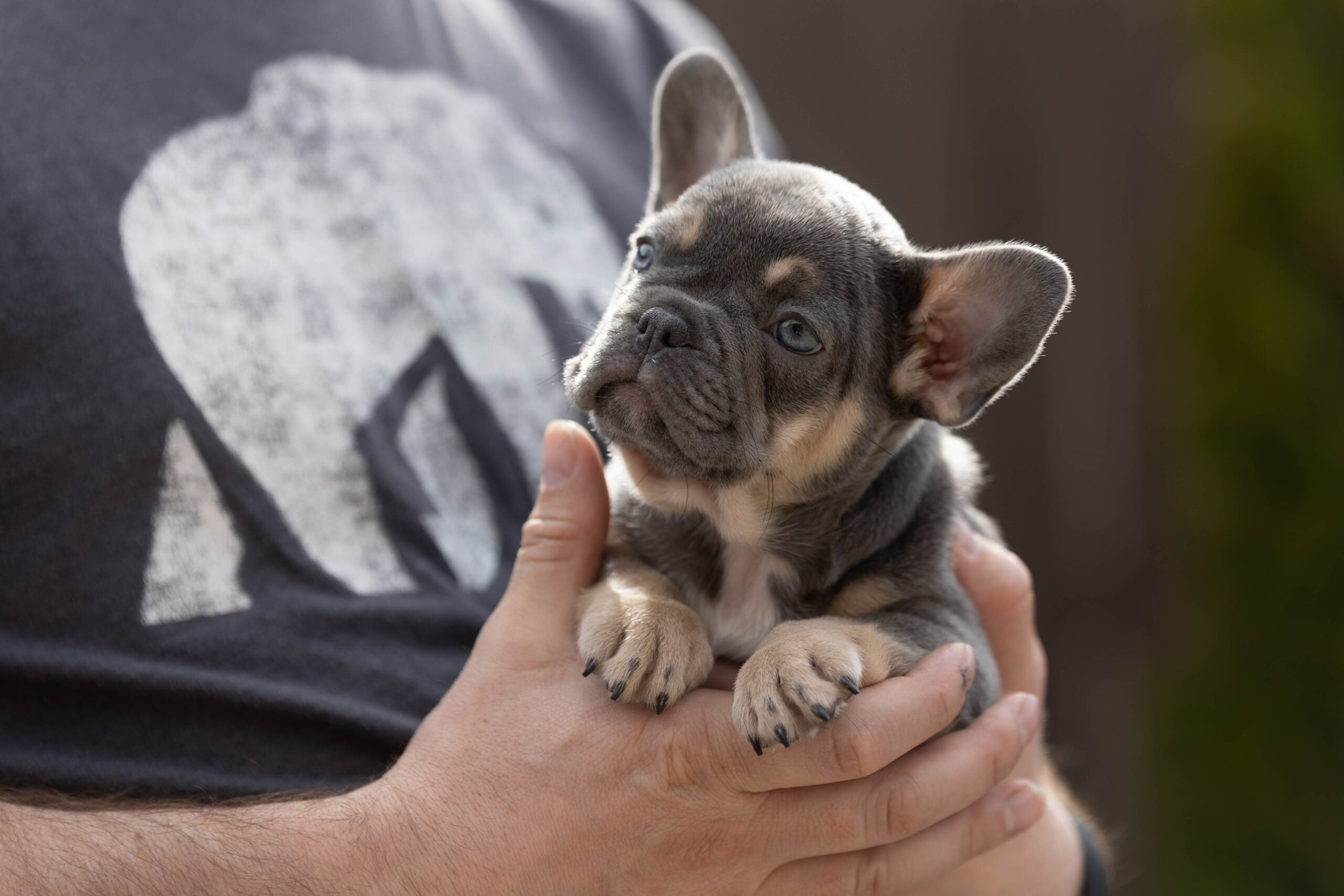
Recessive vs Dominant Genes
Both coat color/patterns and health markers follow the rules of genetic dominance. In order for a health condition to present, it may require two recessive copies or one dominant copy of a gene. Cystinuria Type 3 (C3) for instance, is associated with severe kidney stones for in-tact male Bulldogs. However, this is a recessive gene meaning there need to be two copies present for the condition to surface. If a male French Bulldog had two copies of C3, this knowledge would inform you of the need to have him neutered and exclude him from use as a stud.
Performing a DNA Test on your Dog
The first thing you will need to do is decide which testing facility to use. Some popular choices are Animal Genetics, UC Davis, and Vetgen. You can read the reviews and decide on which laboratory is best for you, keep in mind that we have seen tests come back wrong from various companies which we had to have re-tested. There are three different DNA testing methods:
- Blood Sample
- Dew Claw
- Cheek Buccal Swab
The least invasive choice is the cheek buccal swab and which the majority of pet owners would go with. The DNA Testing company will usually send a swab kit to you at no charge. In order to avoid sample contamination and breakdown, it’s best to avoid allowing your dog to eat near the time of the swab. Insert the swab between the gums and the cheek and turn the swab for about 15-20 seconds. Allow the brush to air dry for a few minutes and place it back in the paper envelope and seal it.

DNA Paperwork
DNA testing for French Bulldogs requires only the necessary DNA tests are performed. You do not want to pay for tests irrelevant to the breed. Many companies will offer a French Bulldog Panel Test which simplifies the process. If that is not an option, select the genes listed above individually. In some cases, it is not worth paying for a certain test, such as when both parents are known not to have the gene. This is true for both health and color testing. Not all companies test for everything either, some companies do not do C3 testing so double-check if you want this done. Many companies still include DM on the French Bulldog panel, but do not pay extra for this test as it is no longer relevant. Once you’ve sent the test to the lab it will take a few weeks for your results to be returned.
Common Questions on DNA Testing for French Bulldogs
A full panel test kit will usually be around $200 USD. Individual tests can be performed at a lower cost.
With blood tests we have seen extremely high accuracy, occasionally we have verified an incurred test from a buccal swab.
If the puppy is still nursing, it is necessary to send in a blood test. A buccal swab can become contaminated by the DNA profile of the mother through nursing.
You can make some determinations if you know the DNA of the parents. If both parents carry two copies of any gene, the puppy will have two copies of it also.

